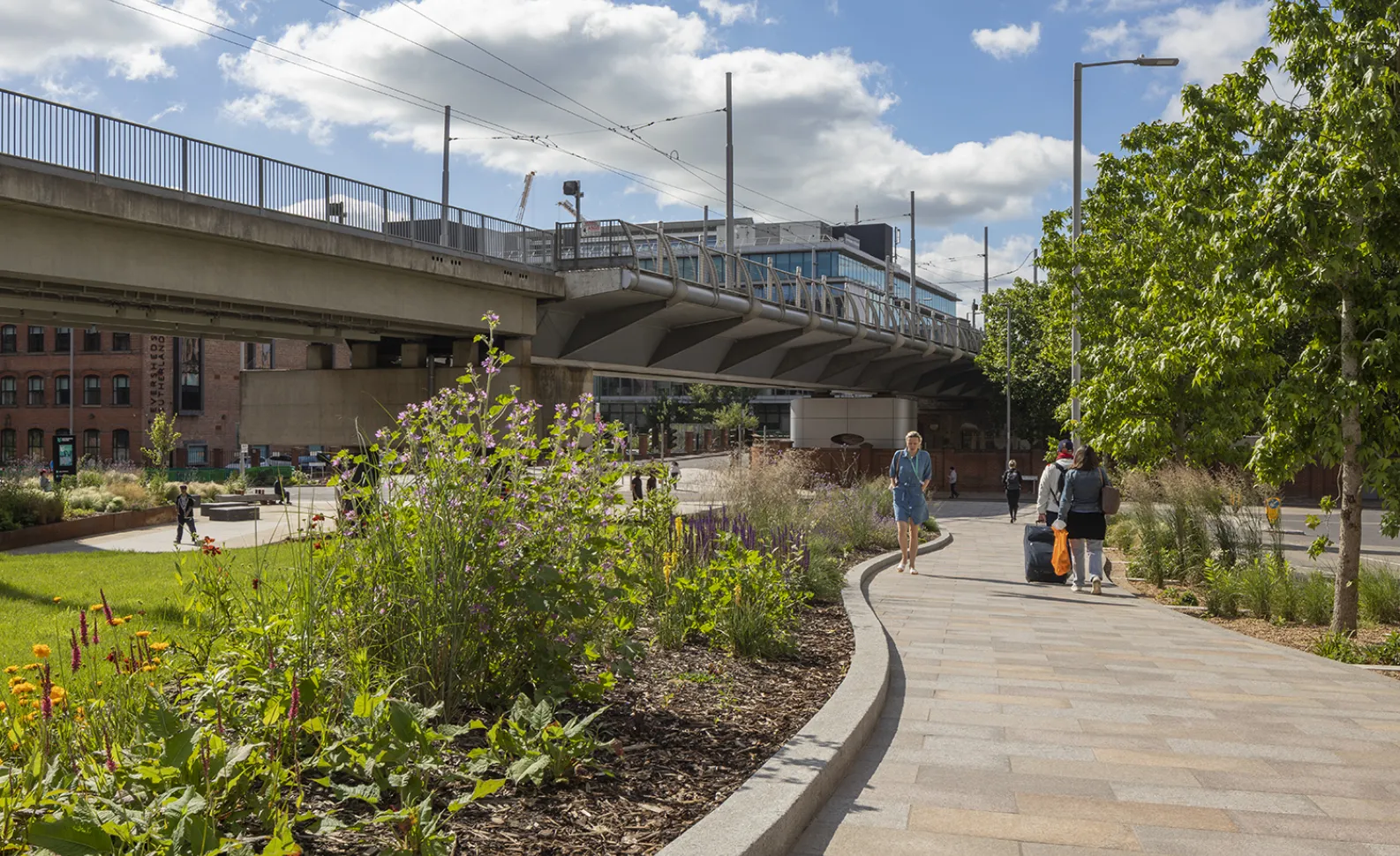Insight
A collaborative focus: Key takeaways from UKREiiF
24 May 2024
UKREiiF has brought together industry leaders, policymakers, and stakeholders to discuss the future of real estate investment and infrastructure development in the UK. This year's event highlighted several critical themes shaping our industry, from the importance of stakeholder engagement to the integration of digital platforms and ESG practices. Below are some of the key takeaways from the forum, offering insights into the trends and strategies that are driving successful project delivery and regional economic growth.
The General Election, and inevitable delays
Sending shockwaves throughout the forum, the General Election was announced during the show. With several industry talks on Thursday aiming to dissect planning policy amongst critical infrastructure areas such as property and housing, delegates had to shift thinking patterns among a changing political and economic sphere. Moving forward, it will be interesting to see how forthcoming debate is shaped against a backdrop of policy pauses and delayed review.
Reuse, retrofit and the circular economy
Encapsulating our panel sessions as well as wider show discussions, it was clear that the efficient use of materials within design practices was a hot topic among industry delegates, set against a backdrop of net zero targets and supply chain shortages. Our panel, fronted by director of sustainability and energy, Tim Danson, clearly stated the challenge ahead, with EU construction and demolition processes accounting for nearly one third of all waste generated.
In tackling this, it was apparent that a collaborative approach, facilitating discussions between design teams across developments, is essential to understanding how we can effectively use and reuse materials. An emphasis on engaging with communities, to assess how they will be impacted and how everyone can benefit from the circular economy in action, was also at the forefront of solution strategies.
There was also significant focus on Michael Gove’s office redevelopment strategy and the ongoing debate surrounding the M&S case. These discussions highlighted the increasing importance of resource efficiency and sustainable practices in the development of future buildings, as well as the changing face of the high street.
Stakeholder engagement as a catalyst
Throughout the event, the importance of stakeholder engagement was emphasised as a critical component to the successful development and delivery of infrastructure projects. Presentations from leading industry experts underscored the value of collaboration, transparency, and community involvement. This notion was underpinned by spotlighting prominent urban regeneration schemes, such as Nottingham’s Broad Marsh redevelopment, which has sought community buy-in through local supply chain integration.
The main message conveyed was that by prioritising these elements, projects can achieve greater buy-in and support from all parties involved, leading to smoother implementation and more sustainable outcomes.
Major infrastructure projects highlighted
High-profile infrastructure projects such as HS2 and Thames Tideway were featured on several panel discussions. Both projects exemplify detailed stakeholder engagement plans, involving environmental groups, public and private sectors, and client organisations. These case studies in particular highlighted how inclusive engagement strategies can address diverse interests and foster collaboration, ensuring that large-scale projects meet broader social and environmental objectives.
Rise of digital platforms
Another prominent topic focused on the integration of digital platforms in project planning and execution. The shift towards virtual consultations and digital engagement tools were highlighted as increasing in standard practice, enabling broader and more inclusive participation. This trend was particularly emphasised in the talk "Beyond Bells & Whistles: The Need to Be Strategic With Your Technology", demonstrating how a critical use of technology can enhance communication and ensure diverse voices are heard, improving project outcomes.
ESG accountability in focus
Environmental, Social, and Governance (ESG) practices took centre stage at UKREiiF, highlighting a growing importance in project planning and execution. The majority of keynotes emphasised the growing accountability placed on organisations to adopt ESG principles, which can create positive regional impacts through social value delivery.
By integrating ESG practices, organisations are better equipped to meet the demands of a conscious market, ensuring developments contribute positively to the wellbeing of communities and the environment. This shift towards ESG accountability reflects a broader trend towards sustainable thinking, where projects are evaluated not just on financial metrics but also on their social and environmental contributions.
Focus on regional developments
The event also spotlighted economic development within our local communities, with key areas such as Leeds and Manchester under the microscope. It was particularly encouraging to hear how the combination of public and private models were drivers of economic growth. By leveraging the strengths of both sectors, regions can attract investment, spur innovation, and create sustainable economic opportunities.
With UKREiiF over for another year, our key takeaways make it clear that the industry must continue to prioritise sustainability, resilience, and community involvement to address the complex challenges facing our cities and regions. By embracing innovation, fostering partnerships and placing further emphasis on ESG, we can work together to create infrastructure that not only meets the needs of today, but also ensures a brighter, more sustainable future for generations to come.
For more information from UKREiiF, head to our insights page or contact us today to discuss your project needs.
Regeneration and public spaces
